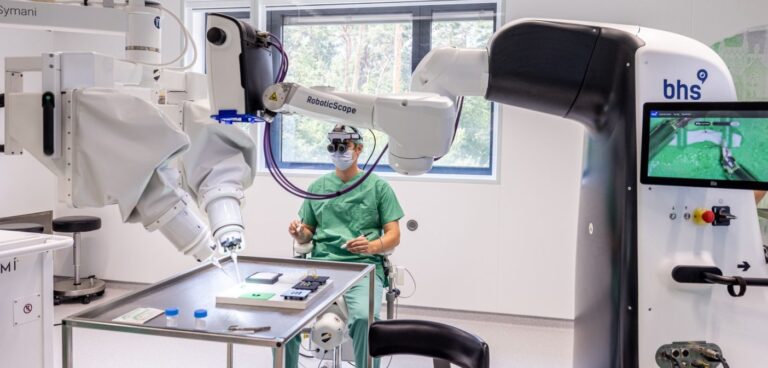Scientists at the University of Münster have performed what they claim is the world’s first completely robot-supported microsurgical operations on human patients.
“This new method for operations enables us to work with a much higher degree of delicacy and precision than is possible with conventional operating techniques,” said Dr. Maximilian Kückelhaus, scientist at the Centre for Musculoskeletal Medicine at Münster University.
“As a result, less tissue is destroyed and patients recover faster.”
The new method involved a robot, named the Symani Surgical System, which was created specifically for microsurgical operations. One of the goals of the new approach was to completely remove human surgeons from the operating area.
During the operation, the robot mimics the movements of a human surgeon’s hands and is controlled via an electromagnetic field and joysticks.
The robot’s movements, when compared to a human, are reportedly reduced in size by up to 20 times. The researchers claim that this, in addition to the use of tiny instruments, completely eliminates the shaking seen in human hands.
The machine is connected to a robotic microscope, which shows the part of the body being operated on through a 3D augmented reality (AR) headset and two monitors.
The headset uses binoculars designed to combine real world and digital information to track the surgeon’s head movements and replicate them in the robot. This is to support a range of complex viewing angles during surgery, as well as a variety of other robotic functions.
One of the ideas behind the machine was to enable surgeons to sit in a relaxed and comfortable position during hours-long surgeries, whereas previous operations might have required them to hold strenuous positions for extended periods of time.
So far, the researchers have apparently completed five successful surgeries using the machine. They hope to perform more operations and to collect further data over the coming months.
The research is a collaboration between Münster University Hospital and Hornheide Specialist Clinic. For the development and trial of the new surgery method, Kückelhaus received funding from the European Union.









